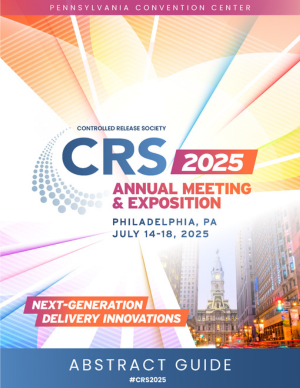Immuno Delivery
Tech Session VI: Immuno Delivery III
Engineering Tolerance: Acetalated Dextran Microparticles in the Generation of B-regs and T-regs
Thursday, July 17, 2025
4:34 PM - 4:59 PM EDT
Location: 119 B
Autoimmune diseases impact approximately 10% of the global population, with current treatments often suppressing overall immunity and failing to provide a cure. Antigen-specific therapies offer a promising alternative by selectively targeting autoreactive cells while preserving the immune system. B-cell dysregulation, a key factor in autoimmunity, is not adequately addressed by existing treatments. We proposed that targeting B-cells with antigen-loaded microparticles in conjunction with dendritic cells (DCs) could improve therapeutic outcomes. Our research shows that acetalated dextran microparticles (AMPs) are effectively taken up by DCs and associate with B-cells in vivo. B-cells treated with AMPs secrete IL-10 and exhibit increased MHCII expression, facilitating tolerogenic antigen presentation to T-cells. Utilizing this mechanism, we developed a B-cell-based therapy using myelin oligodendrocyte (MOG35-55) peptide-loaded AMPs associated with B-cells (MOG-AMP-Bs). In a late-stage therapeutic model of multiple sclerosis, administration of MOG-AMP-Bs led to remarkable recovery, with animals regaining mobility. This approach reduced the number of activated cells and increased regulatory T-cells and B-cells, highlighting its potential as a highly effective antigen-specific therapy for restoring immune balance in autoimmune diseases.

Kristy Ainslie, PhD (she/her/hers)
Distinguished Professor
Division of Pharmacoengineering & Molecular Pharmaceutics, UNC
Chapel Hill, North Carolina, United States

